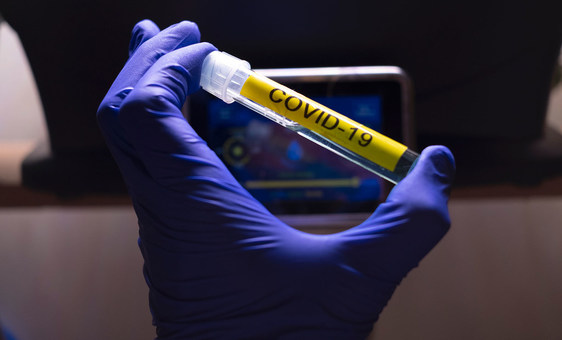ICMR Director General Balram Bhargava’s letter to 12 principal investigators instructing them to fast-track approvals to initiate clinical trials of Bharat Biotech’s COVID-19 vaccine with an aim to launch by August 15, has caused a storm in the scientific community.
ICMR and Bharat Biotech are jointly working on the preclinical as well as clinical development of this vaccine.
India’s foremost science academy, the Indian Academy of Sciences, has become the latest voice to decry the Indian Council of Medical Research’s plan to launch a vaccine for the novel coronavirus by India’s Independence Day, August 15.
The full statement is produced below:
The Indian Academy of Sciences (IASc) has noted that a letter reportedly issued by the Indian Council of Medical Research (ICMR) is circulating in the news and other media. It is mentioned in this letter that ICMR and Bharat Biotech India Limited, a private pharmaceutical company, are jointly developing a vaccine against the novel coronavirus, SARS-CoV-2. The letter also states that “It is envisaged to launch the vaccine for public health use latest by 15th August 2020 after completion of all clinical trials.”
IASc welcomes the exciting development of a candidate vaccine and wishes that the vaccine is quickly made available for public use. However, as a body of scientists – including many who are engaged in vaccine development – IASc strongly believes that the announced timeline is unfeasible. This timeline has raised unrealistic hope and expectations in the minds of our citizens.
While there is an unquestioned urgent need, vaccine development for use in humans requires scientifically executed clinical trials in a phased manner. These trials involve evaluation of safety (Phase 1 trial), efficacy and side effects at different dose levels (Phase 2 trial) and confirmation of safety and efficacy in thousands of healthy people (Phase 3 trial) before its release for public use. Clinical trials for a candidate vaccine require participation of healthy human volunteers. Therefore, many ethical and regulatory approvals need to be obtained prior to the initiation of the trials. While administrative approvals can be expedited, the scientific processes of experimentation and data collection have a natural time span that cannot be hastened without compromising standards of scientific rigour. For example, immune responses usually take several weeks to develop and relevant data should not be collected earlier. Moreover, data collected in one phase must be adequately analysed before the next phase can be initiated. If the data of any phase are unacceptable then the clinical trial is required to be immediately aborted. For example, if the data collected from Phase 1 of the clinical trial show that the vaccine is not adequately safe, then Phase 2 cannot be initiated and the candidate vaccine must be discarded.
For these reasons, the Indian Academy of Sciences believes that the announced timeline is unreasonable and without precedent, and is therefore issuing this statement in the public interest. The Academy strongly believes that any hasty solution that may compromise rigorous scientific processes and standards will likely have long-term adverse impacts of unforeseen magnitude on citizens of India.
On behalf of the Council and the Fellowship of the Indian Academy of Sciences,
Partha P. Majumder
President
ICMR’s Letter To Bharat Biotech
ICMR director general and health research secretary Balram Bhargava had on Thursday written to Bharat Biotech International Ltd’s (BBIL’s) chairman and managing director Krishna M. Ella and executive director V. Krishna Mohan, asking them to “fast track” clinical trials of vaccine candidate Covaxin, setting it a launch deadline of 15 August.
ICMR Issues Clarification
The Indian Council of Medical Research (ICMR) on Sunday said it has not set a 15 August deadline for a Made-in-India vaccine for covid-19.
“Just as red tape was not allowed to become a hindrance in the fast-track approval of new indigenous testing kits or for introducing in the Indian market potential covid-19 related drugs, the indigenous vaccine development process has also been sought to be insulated from slow file movement,” an ICMR statement said.
Defending the August 15 target for launching Covaxin, India’s Covid-19 vaccine candidate, amid criticism from the scientific community, the Indian Council of Medical Research (ICMR) Saturday said the process is “in accordance with the globally accepted norms to fast-track the vaccine development”.
“ICMR’s process is exactly in accordance with the globally accepted norms to fast-track the vaccine development for diseases of pandemic potential wherein human and animal trials can continue in parallel,” the ICMR said in a statement after the scientific community questioned the “near impossible timeline” in getting a vaccine ready for public health use.
“Though a large number of vaccines are under various stages of development all across the world, it is also important to promote indigenous vaccine development while at the same time ensuring safety, quality, ethics and adherence to all regulatory requirements,” ICMR statement added.
“The letter by DG-ICMR to investigators of the clinical trial sites was meant to cut unnecessary red tape, without bypassing any necessary process, and speed up recruitment of participants,” the ICMR said, adding that “the aim is to complete these phases at the earliest, so that population-based trials for efficacy could be initiated without delay.”
ICMR Claim Absurd And Risky: Scientists On Vaccine By August 15
Scientific fraternity had reacted sharply and termed it absurd and risky after the Indian Council of Medical Research (ICMR) made claim that it envisaged the “launch” of a Covid vaccine for “public health use latest by August 15”.
Importantly, the August 15 deadline flies in the face of publicly announced timelines for the possible readiness of this vaccine, including the vaccine developer’s own estimate and the timeline provided to the regulatory body, Drug Controller General of India.
Even AIIMS Director Randeep Guleria, the head of the clinical research group of the national task force on COVID-19, seemed surprised.
“It will be a very challenging and difficult task, considering that we have to look at both efficacy and safety of any vaccine that is introduced. Also, if we get the desired results, the other challenge is the process of mass production of the vaccine,” Guleria said.











